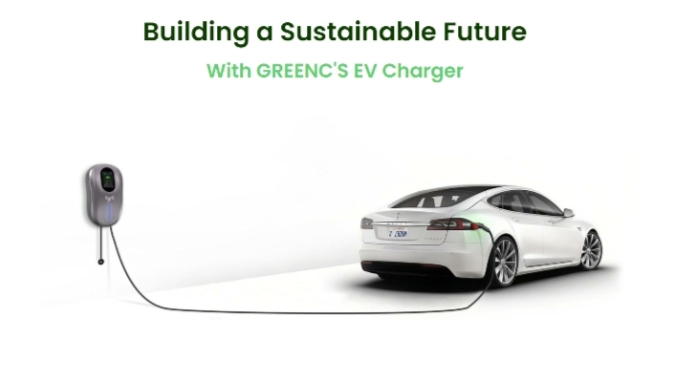As the world transitions towards a more sustainable future, businesses are increasingly recognizing the importance of adopting environmentally friendly practices. Among these practices, integrating electric vehicle (EV) chargers into business operations is emerging as a strategic investment that not only aligns with sustainability goals but also offers a range of benefits for both employees and customers.
Catering to the Electric Workforce
The rise of electric vehicles has led to a growing number of employees making the switch to electric cars. Businesses that install EV chargers on their premises provide a valuable amenity for their workforce, fostering a green and eco-conscious workplace. This employee-centric approach not only enhances the company’s image but also contributes to employee satisfaction and retention.
Attracting Environmentally Conscious Customers
Consumers are becoming increasingly environmentally conscious, and their choices are reflecting this shift. Businesses that offer EV charging facilities demonstrate a commitment to sustainability, attracting customers who prioritise eco-friendly options. This becomes particularly relevant in retail settings, where providing a convenient and sustainable charging solution can differentiate a business from its competitors.
Enhancing Corporate Social Responsibility
Integrating EV chargers aligns with corporate social responsibility (CSR) initiatives. By visibly embracing sustainable practices, businesses demonstrate their dedication to reducing their carbon footprint and mitigating environmental impact. This commitment not only resonates with environmentally conscious consumers but also contributes to a positive corporate image and reputation.
Supporting Green Computing Practices
Businesses that prioritise sustainability can actively encourage employees to adopt green commuting practices. Installing EV chargers encourages the use of electric vehicles, which typically have lower emissions compared to traditional gasoline-powered cars. This not only contributes to reducing air pollution but also aligns with broader initiatives aimed at creating environmentally friendly urban environments.
Financial Incentives and Tax Benefits
Governments and local authorities are recognizing the importance of expanding EV charging infrastructure. Many offer financial incentives and tax benefits to businesses that invest in EV chargers. This can significantly offset the initial costs of installation and serve as a compelling economic incentive for businesses looking to embrace sustainable practices while enjoying financial advantages.
Collaboration with Utility Providers
Installing EV chargers often involves collaboration with utility providers to ensure a stable and efficient power supply. This collaboration can lead to negotiated rates, energy management solutions, and increased reliability. Such partnerships contribute to a more sustainable energy ecosystem while providing businesses with the necessary support for seamless EV charger integration.
Tailoring Solutions for Business Needs
EV charger manufacturers are increasingly offering customizable solutions to meet the unique needs of businesses. From scalable charging infrastructure for large corporate campuses to compact and versatile solutions for small businesses, the options are diverse. This flexibility ensures that businesses can choose solutions that align with their specific operational requirements and available space.
Future-Proofing for Electric Fleets
As businesses consider the transition to electric fleets, having on-site EV chargers becomes a strategic imperative. Installing charging infrastructure that can support electric fleets ensures that businesses are well-prepared for the future of transportation. It not only positions them as industry leaders but also contributes to the overall growth of sustainable practices in the commercial sector.
The Rise of Workplace Charging Programs
Businesses are increasingly participating in workplace charging programs, where they collaborate with employees to support EV adoption. These programs may include offering discounted charging rates, providing dedicated parking spaces with charging access, or even subsidising EV purchases for employees. By actively engaging in these initiatives, businesses not only encourage sustainable commuting but also position themselves as leaders in fostering a green corporate culture.
Boosting Employee Productivity
Beyond the environmental and social benefits, installing EV chargers can positively impact employee productivity. Offering convenient charging solutions at the workplace allows employees to efficiently recharge their vehicles while they work. This eliminates the need for time-consuming trips to external charging stations, contributing to enhanced productivity and reducing disruptions to the workday.
Navigating Regulatory Compliance
As governments worldwide strengthen regulations to promote clean energy and reduce emissions, businesses that invest in EV charging infrastructure position themselves ahead of the regulatory curve. Proactive compliance with evolving environmental standards not only mitigates potential regulatory risks but also positions businesses as responsible corporate citizens contributing to broader sustainability goals.
Leveraging Marketing Opportunities
Businesses with on-site EV chargers have a unique marketing advantage. Highlighting the availability of EV charging facilities in promotional materials, social media, and advertising campaigns can attract a new demographic of environmentally conscious customers. This marketing strategy not only expands the customer base but also aligns the business with modern trends in sustainability, enhancing brand appeal.
Creating Community Impact
Beyond the confines of the workplace, businesses with EV chargers can have a positive impact on their local communities. Opening charging stations to the public during non-business hours can foster community engagement and contribute to the development of a robust and interconnected charging network. This community-oriented approach not only enhances the business’s public image but also strengthens its ties with local residents.
Investment in Resilient Infrastructure
The installation of EV chargers contributes to the development of a resilient energy infrastructure. As businesses become nodes in the growing network of charging stations, they play a vital role in reducing dependence on traditional fuel sources and supporting the transition to a more decentralised and sustainable energy grid.
Collaboration for Industry Advancement
Businesses that invest in EV chargers often collaborate with industry stakeholders, including other businesses, utility companies, and EV manufacturers. This collaborative spirit is essential for advancing the EV ecosystem, fostering innovation, and overcoming challenges associated with charging infrastructure. By actively participating in industry initiatives, businesses contribute to the collective effort to accelerate the adoption of electric vehicles.
In summary, the integration of EV chargers into business operations goes beyond meeting immediate needs—it is a multifaceted strategy that benefits employees, customers, and the broader community. As businesses navigate the transition towards sustainability, EV charging infrastructure stands out as a forward-thinking investment that not only addresses current challenges but also positions them as leaders in a future where clean energy and environmental responsibility are paramount.




